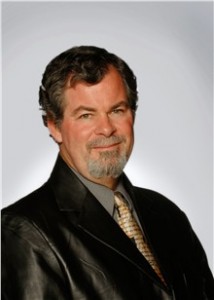 Five quotes:
Five quotes:
(1) Some might interpret ‘It is not of him who wills, nor of him who runs, but of God Who shows mercy’ (Rom.9:16), in this sense — that salvation comes from both, that is, both from the human will and from the mercy of God. In that case, we must understand the saying, ‘It is not of him who wills, nor of him who runs, but of God Who shows mercy,’ as if it meant that the human will alone is not sufficient, unless the mercy of God goes with it. But then it would follow that the mercy of God alone is not sufficient, unless the human will goes with it! Therefore, if we may rightly say, ‘it is not of man who wills, but of God Who shows mercy,’ because the human will by itself is not enough, why may we not also rightly put it the other way round: ‘It is not of God Who shows mercy, but of man who wills,’ because the mercy of God by itself is not sufficient? Surely, no Christian will dare to say this, ‘It is not of God Who shows mercy, but of man who wills,’ in case he openly contradicts the apostle!
So it follows that the true interpretation of the saying, ‘It is not of him who wills, nor of him who runs, but of God Who shows mercy,’ is that the entire work belongs to God, Who both makes the human will righteous, and prepares it in this way for His assistance, and then assists it when it is prepared. For human righteousness of will precedes many of God’s gifts, but not all of them; and it must itself be included among those gifts which it does not precede. We read in Holy Scripture, both that God’s mercy ‘shall meet me’ (Ps.59:10), and that His mercy ‘shall follow me’ (Ps.23:6). Mercy goes before the unwilling person to make him willing; it follows the willing person to make his will effective. Why are we taught to pray for our enemies, who are plainly unwilling to lead a holy life, unless that God may produce willingness in them? And why are we ourselves taught to ask in order that may receive, unless that He who has created in us the wish, may Himself satisfy the wish? We pray, then, for our enemies, that the mercy of God may go before them, as it has gone before us; and we pray for ourselves that His mercy may follow us.
Enchiridion, 32
(2) The kind of teaching we are talking about is spoken of by the Lord when He says: ‘Everyone who has heard and learned from the Father comes to Me’ (Jn.6:45). So if someone does not come to Christ, we cannot correctly say of him, ‘he has heard and learned that he ought to come to Christ, but he is not willing to do what he has learned.’ It is indeed absolutely improper to apply such a statement to God’s method of teaching people by grace. For if, as the Truth says, ‘Everyone who has learned comes,’ it follows, of course, that whoever does not come has not learned. But who can fail to see that a person’s coming or not coming is by the choice of his will? If a person does not come to Christ, he has simply made his choice not to come. But if he does come, it cannot be without assistance — such assistance that he not only knows what it is he ought to do, but actually does what he knows.
And so, when God teaches, it is not by the letter of the law, but by the grace of the Spirit. Moreover, He teaches so that whatever a person learns, he not only sees it with his perception, but also desires it with his choice, and accomplishes it in action. By this method of divine instruction, our very choosing itself, and our very performance itself, are assisted, and not merely our natural ‘capacity’ of willing and performing. For if nothing but this ‘capacity’ of ours were assisted by this grace, the Lord would have said, ‘Everyone that has heard and learned from the Father may possibly come to Me.’ This, however, is not what He said. His words are these: ‘Everyone who has heard and learned from the Father comes to Me.’
Now Pelagius says that the possibility of coming lies in our nature. Or as we even found him attempting to say some time ago, it lies in grace (whatever that may mean according to him), as when he says, ‘grace assists our capacity of coming to Christ.’ But he holds that our actual coming to Christ lies in our own will and act. Now just because a person may come to Christ, it does not follow that he actually comes, unless he has also willed and acted to come. But everyone who has learned from the Father not only has the possibility of coming, but actually comes! And in this result are already included the use of the capacity, the affection of the will, and the effect of the action.
On the Grace of Christ and Original Sin, 1:27
Continue reading →

 Dr. Dan Wallace influences students across the world through his textbook on intermediate Greek grammar. It is used in more than two-thirds of the USA’s schools that teach that subject.
Dr. Dan Wallace influences students across the world through his textbook on intermediate Greek grammar. It is used in more than two-thirds of the USA’s schools that teach that subject. David Murray conducted a very useful and informative interview with ex-Mormon and now Christian author Latayne Scott. She answers questions like these:
David Murray conducted a very useful and informative interview with ex-Mormon and now Christian author Latayne Scott. She answers questions like these: Five quotes:
Five quotes: Dr. James White deals with the subject of Universalism, an ancient heresy that is making in-roads into the professing evangelical Church in our day. Even if you are sure it is wrong, are you able to show this from the Bible? Its very important, in light of the current widespread falsehoods being expressed by Rob Bell’s “Love Wins” book (and others out there), to be able to articulate what it is we believe and why we believe it. You will find the audio of Dr. White’s message
Dr. James White deals with the subject of Universalism, an ancient heresy that is making in-roads into the professing evangelical Church in our day. Even if you are sure it is wrong, are you able to show this from the Bible? Its very important, in light of the current widespread falsehoods being expressed by Rob Bell’s “Love Wins” book (and others out there), to be able to articulate what it is we believe and why we believe it. You will find the audio of Dr. White’s message  (1) A man died and went to The Judgment, they told him , “Before you meet with God, I should tell you — we’ve looked over your life, and to be honest you really didn’t do anything particularly good or bad. We’re not really sure what to do with you. Can you tell us anything you did that can help us make a decision?”
(1) A man died and went to The Judgment, they told him , “Before you meet with God, I should tell you — we’ve looked over your life, and to be honest you really didn’t do anything particularly good or bad. We’re not really sure what to do with you. Can you tell us anything you did that can help us make a decision?”